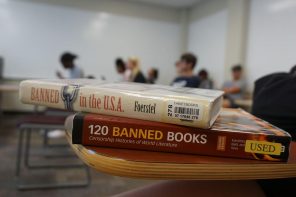By Marjory Wentworth, contributing editor | In our very first television interview about our book We Are Charleston, Tragedy and Triumph at Mother Emanuel, the reporter thrust the microphone in my face and asked “Why would a white woman want to write this book?”
I was standing between my African American co-writers, Herb Frazier and Dr. Bernard Powers, at the time, and the question took me by surprise, but it shouldn’t have. I wanted to respond that if he had done his research, the reporter might have asked the opposite question; how could I not write this book? I immediately understood that in order to respond properly, I had to think deeply about the things that matter most to me, both as a writer and a human being, because all of those things came together in the writing of this book.
I grew up in small Massachusetts town in a predominantly Jewish neighborhood; the shops were closed on Saturdays and many of the cultural traditions were not something we practiced in our home. But it was also a neighborhood haunted by the holocaust, and that deep wound permeated my childhood and my understanding of human behavior. And then I moved to Charleston in the 1980s, a place also haunted by a cruel past. The unhealed wounds of slavery seemed to permeate the institutions here. I was not prepared for it.
The biggest difference between Charleston and my hometown, however, was the lack of information and almost complete erasure of the city’s pivotal role in the slave trade. Not only did people not discuss the legacy of slavery here, it was as if it hadn’t happened. I quickly became part of the creative community — a community that seemed determined to use the arts to bridge the racial divide and bring people together in unique and hopeful ways.
To speak up for those without a voice is often the profound responsibility of a poet, and the poetry of witness has always been my greatest interest. I have written poems about Indochinese and Haitian refugees I met when I was a refugee resettlement worker, North African and Pakistani political prisoners I knew from my work with Amnesty International and many individuals who have suffered unnecessarily at the hands of others. And make no mistake about it, what happened at Mother Emanuel AME Church, as Cynthia Graham Hurd’s brother Malcolm Graham reminds us repeatedly, was an attack on a race of people. It was a crime against humanity, and was immediately recognized as such. Although I have written about human rights violations for decades, I never imagined that something this horrific would happen in the heart of our beloved community.
16.0610.wearecharlestonWriting at its best is redemptive, and from the get-go Herb Frazier, Dr. Bernie Powers and I believed it was something we could do together. During the harrowing days and weeks following the shooting, just about everyone wanted to do something to help – from handing out water at prayer vigils to writing a check to help the families pay for the funerals. Writing a book was something we could do.
I wrote the poem “Holy City” for The Post and Courier newspaper the Sunday after the massacre, which was the first time the church opened its doors for services. I stood with hundreds of others outside the Morris Brown AME Church less than 24 hours after shooting and I felt the collective grief and compassion that would soon permeate the humid air sitting over Charleston. The next day was the bond hearing, and the forgiveness offered by some of the family members was something unprecedented with powerful implications. I wanted to describe what it felt like to live through those endless days and nights in June 2015. I also wanted to understand and articulate the forces that were bearing down on us from the past.
Ultimately I wrote this book because my heart was broken, like so many others here. I wanted to bring meaning to something unfathomable. Since I strongly believe that to be a writer in South Carolina and not write about the African American experience is to not really be here at all. As poet laureate of the state, my ultimate responsibility is to articulate what it means to be a South Carolinian. We Are Charleston embodies all these aspects of my writing life, and I hope I have done this story justice.


